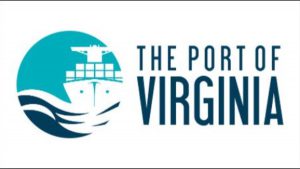The U.S. Department of Agriculture has given the Port of Virginia approval to import South American fruit this week.

This approval comes from a USDA program that the port joined in October 2017 which allowed containers of blueberries, citrus, and grapes from Peru; blueberries and grapes from Uruguay; and apples, blueberries, and pears from Argentina, to enter in the U.S. following a two-week cold treatment process.
Currently, as reported by Virginia Business, the port of Virginia has had an 8.9 percent increase in its container volume in January and, to date, container traffic during the fiscal year is up 2.8 percent.
To accommodate this approval, the port is investing a combined $700 million to expand capacity at Virginia International Gateway (VIG) and Norfolk International Terminals (NIT).
The investment will include an expanded capacity for refrigerated cargo at each terminal.
Some possible positive outcomes from this can be lower transportation costs for shippers, a longer shelf life for the produce, lower prices for consumers, and environmental benefits from reduced emissions related transportation.
A few other ports taking part in this USDA program are Wilmington, NC; Charleston, SC; Port Everglades, FL; Jacksonville, FL; Fort Lauderdale, FL; and Savannah, GA.
En español.
The U.S. Department of Agriculture has given the Port of Virginia approval to import South American fruit this week.

This approval comes from a USDA program that the port joined in October 2017 which allowed containers of blueberries, citrus, and grapes from Peru; blueberries and grapes from Uruguay; and apples, blueberries, and pears from Argentina, to enter in the U.S. following a two-week cold treatment process.
Currently, as reported by Virginia Business, the port of Virginia has had an 8.9 percent increase in its container volume in January and, to date, container traffic during the fiscal year is up 2.8 percent.
To accommodate this approval, the port is investing a combined $700 million to expand capacity at Virginia International Gateway (VIG) and Norfolk International Terminals (NIT).
The investment will include an expanded capacity for refrigerated cargo at each terminal.
Some possible positive outcomes from this can be lower transportation costs for shippers, a longer shelf life for the produce, lower prices for consumers, and environmental benefits from reduced emissions related transportation.
A few other ports taking part in this USDA program are Wilmington, NC; Charleston, SC; Port Everglades, FL; Jacksonville, FL; Fort Lauderdale, FL; and Savannah, GA.
En español.
Marco Campos is Media Coordinator, Latin America for Blue Book Services.



